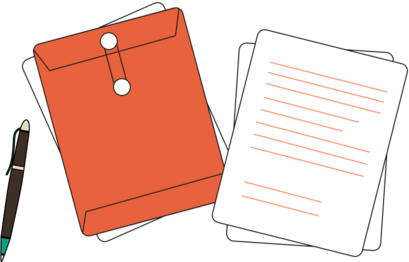Get peace of mind with a comprehensive estate plan
Get peace of mind with a comprehensive estate plan
Secure your family and assets with the #1 online estate plan service—trusted by 2.1M+ customers. Create your will or trust online and get advice from experienced attorneys. Plans start at $149.
Secure your family and assets with the #1 online estate plan service—trusted by 2.1M+ customers. Create your will or trust & get advice from attorneys. Plans start at $149.
Start my estate plan

Have questions? Call (866) 679-1568 for a free discovery call.

Have questions? Call (866) 679-1568 for a free discovery call.
Why is estate planning important?
Why is estate planning important?

Safeguard your assets and your family’s future
Help ensure your assets, property, and savings go exactly where you want them to. Give your family financial security and avoid costly legal complications.


Comprehensive estate plans at an affordable price
Explore our estate plan services to create your will or trust online. Our premium plans provide one year of comprehensive legal assistance from our attorney network, including estate planning advice and a wide range of personal legal matters to help you navigate important decisions and legal complexities.
Explore our estate planning services to create your wills and trusts online. Our premium plans offer one year of estate planning advice from our attorney network to assist with important decisions and legal complexities.
Pro Will


$149
Includes:
Last will & testament
Healthcare directive
Medical power of attorney
Financial power of attorney
HIPAA authorization
Pet care provisions
Secure online document storage
Unlimited 30 min attorney consultations for 30 days—renews at $25/month*
Unlimited revisions for 30 days
One set of printed and shipped documents
Premium Will


$299
Includes:
Last will & testament
Healthcare directive
Medical power of attorney
Financial power of attorney
HIPAA authorization
Pet care provisions
Secure online document storage
Unlimited 30 min attorney consultations for 1 year—renews at $199/year**
Unlimited revisions for 1 year
One set of printed and shipped documents
10% off LegalZoom products
25% off attorney services
Annual 1 hour estate planning review with an experienced attorney
Why choose a trust
Get all the protection of a will and avoid probate court
Basic Trust
$399
Includes:
Living trust
Pour-over will
Healthcare directive
Medical power of attorney
Financial power of attorney
HIPAA authorization
Certificate of trust
Schedule of assets
Bill of transfer
Pet care provisions
Secure online document storage
Unlimited revisions for 30 days
One set of printed and shipped documents
Premium Trust


$549
Includes:
Living trust
Pour-over will
Healthcare directive
Medical power of attorney
Financial power of attorney
HIPAA authorization
Certificate of trust
Schedule of assets
Bill of transfer
Pet care provisions
Secure online document storage
Unlimited 30 min attorney consultations for 1 year—renews at $199/year**
Unlimited revisions for 1 year
One set of printed and shipped documents
10% off LegalZoom products
25% off attorney services
Annual 1 hour estate planning review with an experienced attorney
Pro Will


$249
Includes:
2 Last will & testaments
2 Healthcare directives
2 Medical power of attorney
2 Financial power of attorney
2 HIPAA authorizations
Pet care provisions
Secure online document storage
Unlimited 30 min attorney consultations for 30 days—renews at $25/month*
Unlimited revisions for 30 days
One set of printed and shipped documents
Premium Will


$399
Includes:
2 Last will & testaments
2 Healthcare directives
2 Medical power of attorney
2 Financial power of attorney
2 HIPAA authorizations
Pet care provisions
Secure online document storage
Unlimited 30 min attorney consultations for 1 year—renews at $199/year**
Unlimited revisions for 1 year
One set of printed and shipped documents
10% off LegalZoom products
25% off attorney services
Annual 1 hour estate planning review with an experienced attorney
Why choose a trust
Get all the protection of a will and avoid probate court
Basic Trust
$499
Includes:
Living trust
2 Pour-over wills
2 Healthcare directives
2 Medical power of attorney
2 Financial power of attorney
2 HIPAA authorizations
Certificate of trust
Schedule of assets
Bill of transfer
Pet care provisions
Secure online document storage
Unlimited revisions for 30 days
One set of printed and shipped documents
Premium Trust


$649
Includes:
Living trust
2 Pour-over wills
2 Healthcare directives
2 Medical power of attorney
2 Financial power of attorney
2 HIPAA authorizations
Certificate of trust
Schedule of assets
Bill of transfer
Pet care provisions
Secure online document storage
Unlimited 30 min attorney consultations for 1 year—renews at $199/year**
Unlimited revisions for 1 year
One set of printed and shipped documents
10% off LegalZoom products
25% off attorney services
Annual 1 hour estate planning review with an experienced attorney

Have questions? Call (866) 679-1568 for a free discovery call.
If an attorney from our network advises you to set up a last will instead of a living trust or vice versa, please call us to change your order. See LZ Guarantee for exact terms.
Why use LegalZoom to set up an estate plan?
Why use LegalZoom to set up an estate plan?

Hassle-free
Start your estate plan in minutes from home—no lawyer visits needed. Just answer a few questions to get started.

Attorney-supported
Access guidance from highly rated, experienced attorneys from our network, who can guide you through every step of your estate planning.

Accepted in every state
Feel secure knowing our estate plans were drawn up by a team of experienced attorneys and have been accepted in all 50 states.
Will vs. Trust: What’s the difference?
Will vs. Trust: What’s the difference?
Choose the right estate plan for you
Will vs. Trust: What’s the difference?
Will vs. Trust: What’s the difference?
Choose the right estate plan for you

What is it?
A legal arrangement where a trustee manages assets—like a will, but with the option to avoid probate court

When does it take effect?
Immediately

How are assets passed down?
Avoids probate—allows private and quicker transfer of assets

Is it private?
Stays private (before and after death)

Can it be changed?
Revocable living trusts can be easily updated or canceled anytime during your lifetime

How quickly are assets distributed?
Distributed without probate (typically several weeks)

Does it include planning for incapacity?
Includes provisions for incapacity

Are there tax planning benefits?
Can be structured to minimize certain taxes, such as estate, capital gains, and generation-skipping transfer (GST) taxes

Creation and maintenance
Requires more time and effort to set up, with ongoing management

Can it manage complex estate planning?
Often chosen for complicated needs; helps manage multiple properties and can lower taxes

Ready to start your estate plan?
Ready to start your estate plan?
Our platform makes creating or updating your Will or Trust easy, with attorneys available for personalized support.
Create my estate plan


Ready to start your estate plan?
Ready to start your estate plan?
Our platform makes creating or updating your Will or Trust easy, with attorneys available for personalized support.
Create my estate plan

Understanding Estate Planning
Understanding Estate Planning

What is estate
planning?
Estate planning organizes the management and distribution of your assets after your death and also plans for your incapacity. Without it, these decisions may be decided by a court.

Who needs to estate plan?
Everyone! Whether you own assets, have children, pets, healthcare needs, or simply want to protect your legacy, estate planning is essential.

When should I update my estate plan?
Revisit your estate plan every year or after major life changes, like marriage, divorce, welcoming a child, changes in financial or health situations, or beneficiary relationships.
What documents do we offer in our estate plans
Last Will and Testament
Legally empowers you to pass on your assets after your death. You can also nominate guardians for your minor children
Living Trust (Trust only)
Like a last will, a living trust allows you to nominate guardians and choose who will receive your assets after your death. It also allows your family to avoid the time-consuming and costly probate court process.
Financial Power of Attorney
Lets you choose someone to handle your financial matters if you're unable to do so. They can pay bills, manage property, and make financial decisions on your behalf.
Advance Healthcare Directive (Living Will)
Let your loved ones and doctors know your healthcare wishes if you can’t speak for yourself. You can also choose someone to make decisions for you.
HIPAA Authorization
Grants access to your medical information to designated individuals.
Certificate of Trust (Trust only)
Summarizes trust details for legal or financial purposes.
Pour-Over Will (Trust only)
Acts as a safety net to the Living Trust, transferring any remaining assets outside the trust into the trust upon your death to ensure everything is included.
Schedule of Assets (Trust only)
A detailed inventory of all assets included in the trust to ensure proper management.
Bill of Transfer (Trust only)
A document used to formally transfer ownership of assets into the trust.
Complete your estate plan with LegalZoom in 3 easy steps
Complete your estate plan with LegalZoom in 3 easy steps

Answer our quick questions
These include choosing someone to settle your affairs, deciding what you want to leave to loved ones, and naming a guardian for your minor children.

02
We'll create your estate plan
We'll use your answers to create your estate planning documents, which you can view in your LegalZoom account.

Review with an attorney or on your own
Depending on which package you picked, review on your own or with a lawyer on a call. Then print and sign.
Comprehensive estate planning for your unique needs

Estate planning for seniors and elderly parents
Start my estate plan


Estate plans for parents with children and young adults
Estate plans for parents with children and young adults
Whether you are a new parent or the parent of grown children, we offer comprehensive estate planning solutions that create a plan to protect your family. Our services include establishing trusts, designating guardians, and creating other essential estate planning forms to help ensure that your wishes are respected.
Start my estate plan

Estate plans for married couples
Start my estate plan


Estate plans for blended families
Start my estate plan
Estate planning resources
Estate planning resources
What Is a Living Trust? How Does It Work?
Learn how a living trust helps you to manage your assets during your lifetime, plan for incapacity, and ensure your wishes are honored after your death. Read more
Revocable vs. Irrevocable Living Trusts
Understanding the differences between a revocable and irrevocable trust is key to choosing the right living trust for your needs. Read more
Estate Planning: 11 Things to Do Before You Die
Discover essential concepts, terminology, and the step-by-step process of creating a trust. Learn to set up a trust online and explore the do-it-yourself (DIY) trust options. Read more
Want to learn more? Explore our estate planning resources
Frequently asked questions
Frequently asked questions
When to start estate planning?
As long as you're over 18 years old, there's no wrong time to start estate planning or to speak to an estate planning attorney. Most people start estate planning after a major life event, such as getting married, buying a home, having kids, or after a death in the family. But everyone can benefit from planning ahead. You can always start by speaking with an estate plan attorney.
What is the difference between a will and an estate plan?
A last will is a single legal document that is part of an estate plan. It details who will inherit from you after you pass away, but an estate plan does more. For example, estate planning also gives you the power to appoint people you trust to make financial and healthcare decisions on your behalf and share treatment preferences with medical staff when you can't communicate.
What are the key steps in an estate planning process?
Here are the steps to create an estate plan:
- Take inventory of your assets
- Define your beneficiaries and goals
- Appoint trusted individuals
- Create essential legal documents
- Review and update regularly
How do I know if I need a last will or a living trust?
While a last will and a living trust both lay out how to transfer your assets and personal property after your death, there are some key differences. An estate plan attorney can also advise which might meet your needs best. A last will may be easier to set up, but it often needs to go through the court probate process after your death. A funded living trust should avoid probate, but transferring your assets into a trust can take time and require additional paperwork.
To help you decide which is best, our premium estate plans include a year of Attorney Assist. If you purchase a premium estate plan, you can immediately schedule an estate plan attorney call. An estate planning attorney can help you make decisions after reviewing your assets, family situation, state laws, and other factors.
What happens after I order my complete estate plan?
Follow the below steps to build your estate plan once you’ve completed the order:
1. Complete the online questionnaire: Answer simple questions about your assets, wishes, and key details.
2. We prepare your documents: Based on your answers, we’ll create your personalized estate planning documents. Our estate plans were made by a team of experienced estate planning attorneys and have been accepted in all 50 states.
3. Download and review your documents: Review them at your convenience—print and sign when ready.
4. Schedule an attorney review (if applicable): With a premium plan, you can schedule a call with a highly rated, vetted attorney to review your documents and answer questions before signing.
Do I need to speak with an attorney before starting my estate plan?
No, but it can help to speak to an estate planning attorney. If you buy a premium estate plan, you can schedule a call with an estate plan attorney from our network before starting the questionnaire to create your documents.
What if I need to make changes to my estate plan?
With our premium estate plans, you can revise your documents as often as you need, at no additional cost, for one year. We also offer standalone options to revise your estate plan for ongoing peace of mind. If you have questions throughout your process, our network of estate planning attorneys is here to help.
What makes LegalZoom stand out for estate plan services?
More than 2.1 million people have turned to us for estate planning. LegalZoom sets itself apart with its affordability and attorney guidance, making it an ideal choice for your estate planning needs.
We offer a comprehensive range of estate plan services, including guidance from highly rated attorneys, to help you protect your family and assets with ease. Create a customized will- or trust-based estate plan online, including all the essential documents you need—all from the comfort of your home.
What is the difference between estate vs. trust?
An estate is the total assets someone has at death, typically going through probate for distribution.
A trust is a legal document where a trustee manages assets for beneficiaries, often created during the grantor's life to avoid probate, reduce taxes, and allow for more control and privacy in asset distribution.
How much does estate planning cost?
Creating a standard will estate plan with an attorney varies by state but typically costs between $300 and $1,500. If you need a more complex plan, such as one with a trust, the typical cost can range from $1,000 to $5,000 for legal assistance.
Estate planning costs are influenced by several factors, including the number of individuals involved, the complexity of the estate, state-specific requirements, and attorney fees. Complex estates with multiple assets can incur higher costs.
What can an estate planning attorney do?
An estate planning lawyer plays a crucial role in organizing and overseeing the process of setting up an estate plan. Among other things, they can help create essential legal documents such as wills and trusts, offer guidance on tax strategies to reduce liabilities, and support clients through the probate or trust administration process. These professionals also help resolve conflicts among heirs and educate fiduciaries about their duties.
How often should I update my will?
It's recommended common practice to review your will every year, or whenever a major life event occurs. Marriage, divorce, the birth or adoption of a child, significant changes in your assets, or the loss of a beneficiary—all of these necessitate a second look at your estate plan. Our premium estate plans include access to attorney guidance and unlimited revisions for a year, so you can easily keep your plan up-to-date. We also offer standalone options to revise your estate plan for ongoing peace of mind.
Will I have to pay estate and inheritance taxes?
It depends. The Internal Revenue Service levies a tax on estates that are worth more than a certain amount of money (the amount changes each year). Some states also apply their own estate taxes or inheritance taxes as well. Estate tax planning is typically a consideration for larger estates. But, you may want to consult with a financial planner, estate plan attorney, and tax advisor to assess your potential inheritance tax or estate tax liability.
How we’ve helped our customers
It's wonderful
that a lawyer is available to review all documents and answer questions.
It's wonderful that a lawyer is available to review all documents and answer questions.
— Rose G., estate plan customer
Rose G.,
ESTATE PLAN CUSTOMER





.2M+
Estate planning docs
created
Estate planning docs created
This process was easier than I thought ... The lawyer I worked with was very personable and knowledgeable.
—Colette W., estate plan customer
Colette W.,
ESTATE PLAN CUSTOMER






+
years
of customer’s trust

Ready to start your estate plan?
Ready to start your estate plan?
Our platform makes creating or updating your Will or Trust easy, with attorneys available for personalized support.
View estate plans



Sat–Sun 7 am–4 pm PT









